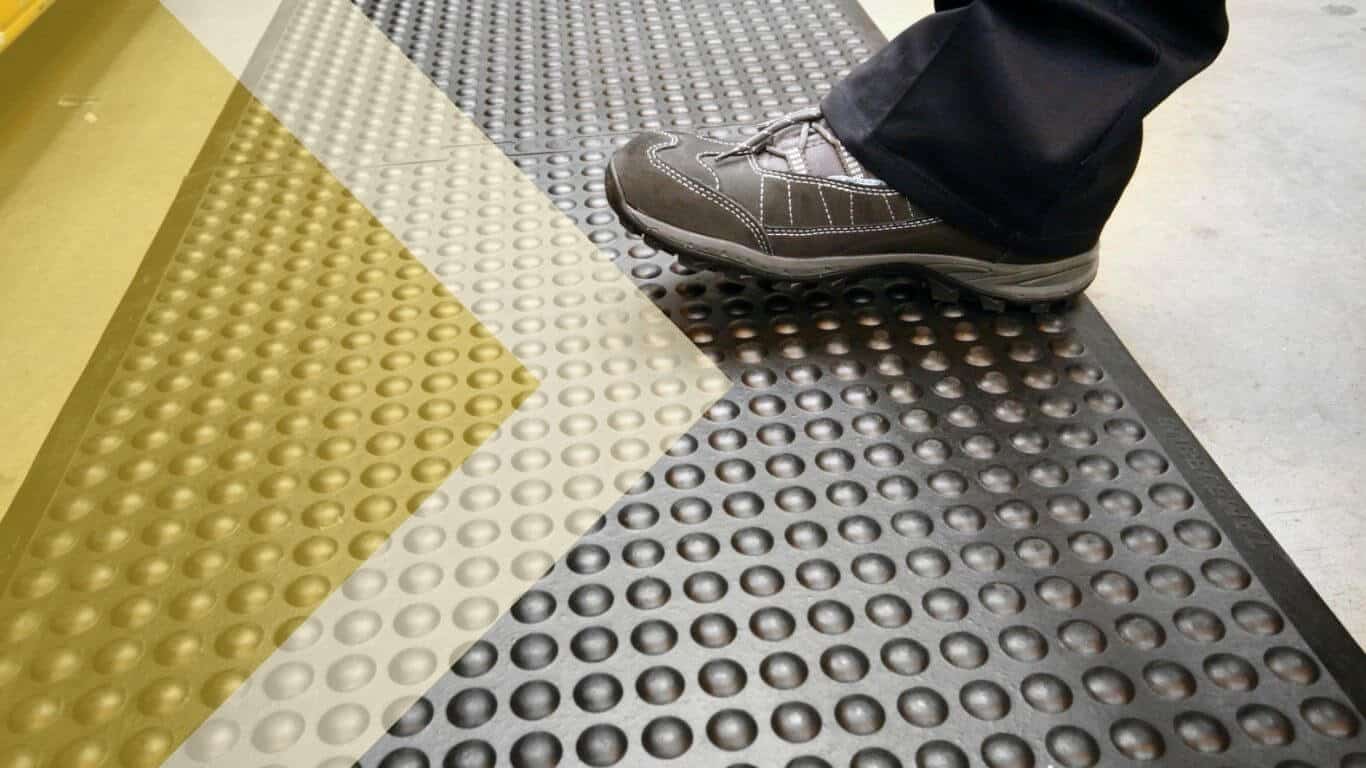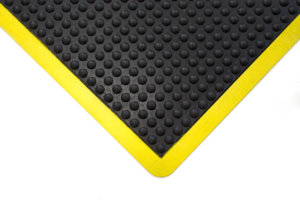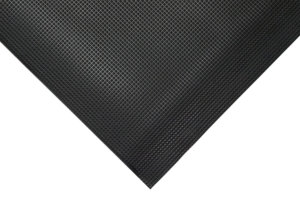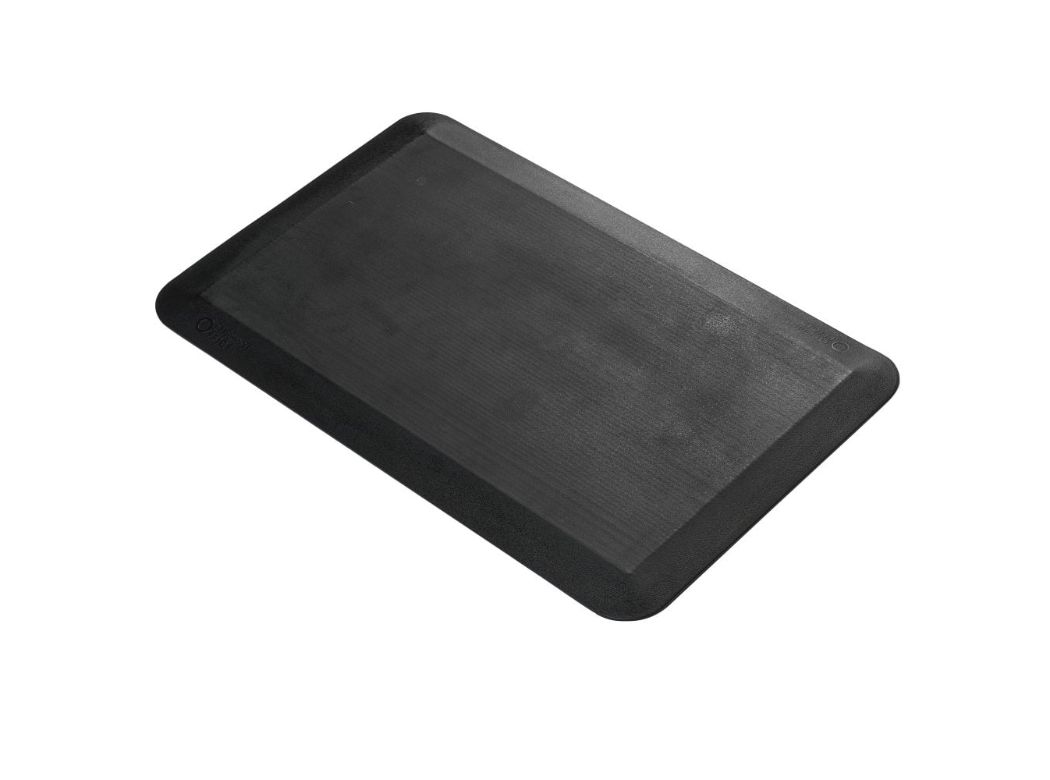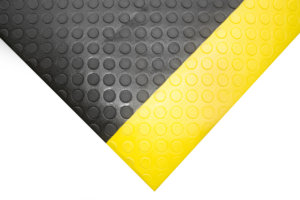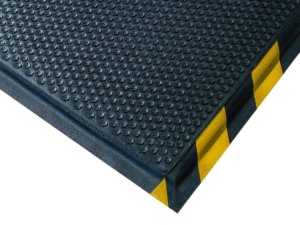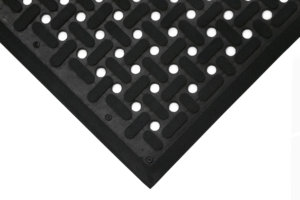Employers have a duty to ensure that reasonable provisions are in place to manage workplace fatigue in all working environments. They must ensure that individuals are not exposed to health and safety risks.
Types of work areas where people can benefit from anti-fatigue matting includes industrial environments (manufacturing, factories, packing stations, catering outlets, labs) as well as offices. Anti-fatigue mats are a great way to offer relief from standing on a cold, hard floor for extended periods of time.
KEY RISK FACTORS EVERY WORKPLACE CAN ASSESS
⚫ Being aware of the elements that can trigger fatigue
⚫ Are there any accidents or injuries that could be a cause of fatigue?
⚫ Having appropriate measures in place to identify and prevent fatigue
⚫ Implementing regular reviews to ensure anti fatigue measures are working effectively
⚫ Wherever possible, offer employees the ability to alternate between sitting and standing
We outline below how two different working environments (office and industrial) can manage employee fatigue.
HOW TO HANDLE OFFICE ENVIRONMENT FATIGUE
⚫ Taking regular breaks from computer screens, to reduce eye fatigue
⚫ Routine eye tests are also recommended to prevent eyestrain
⚫ Mental fatigue can also be reduced by introducing regular breaks
⚫ Alternating between sitting and standing positions to reduce physical fatigue and sedentary behaviour.
⚫ If standing desks are an option, appropriate standing mats should be installed
⚫ Regular desk assessments should be carried out to prevent physical fatigue, including good lighting in the workspace
⚫ Anti-fatigue mats for standing desks
⚫ Having walking meetings will help prevent physical fatigue from prolonged sitting at a desk – prolonged sitting has been described as a ‘silent killer’
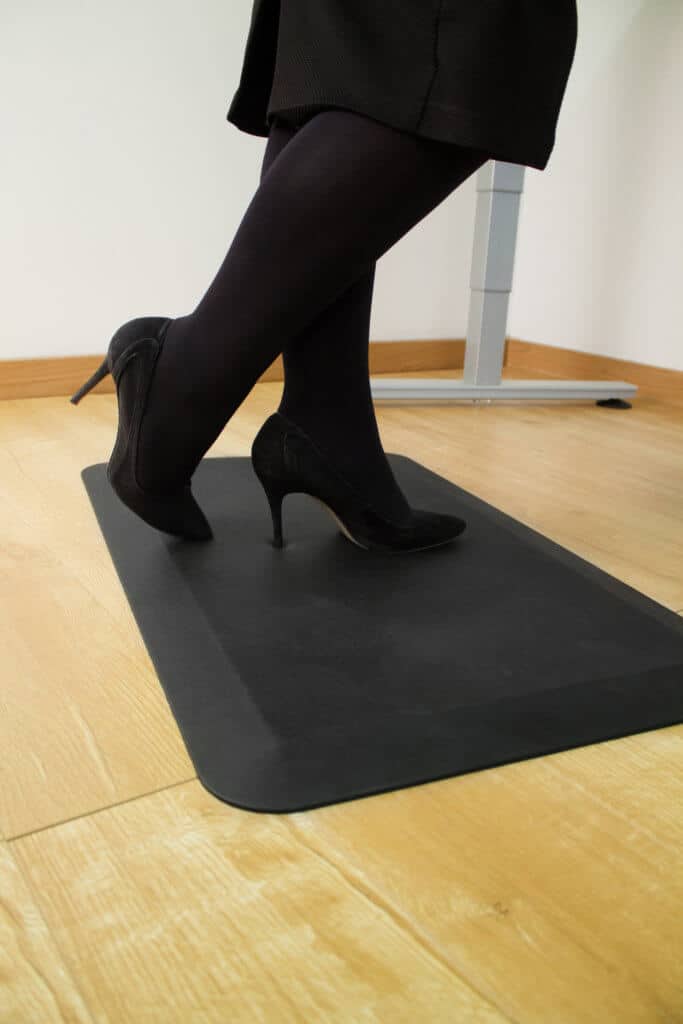
HOW TO MANAGE INDUSTRIAL ENVIRONMENT FATIGUE
⚫ Anti-fatigue mats for standing workers
⚫ Regular workstation assessments should be carried out to ensure appropriate anti fatigue matting is in place, to reduce standing fatigue
⚫ Where possible offer the opportunity to alternate between sitting and standing. This will reduce physical fatigue and problems associated with prolonged standing, such as MSDs
⚫ Taking regular breaks to prevent mental fatigue and physical fatigue
⚫ Ensuring the working environment has good lighting and ventilation, especially if chemicals are being used for manufacturing
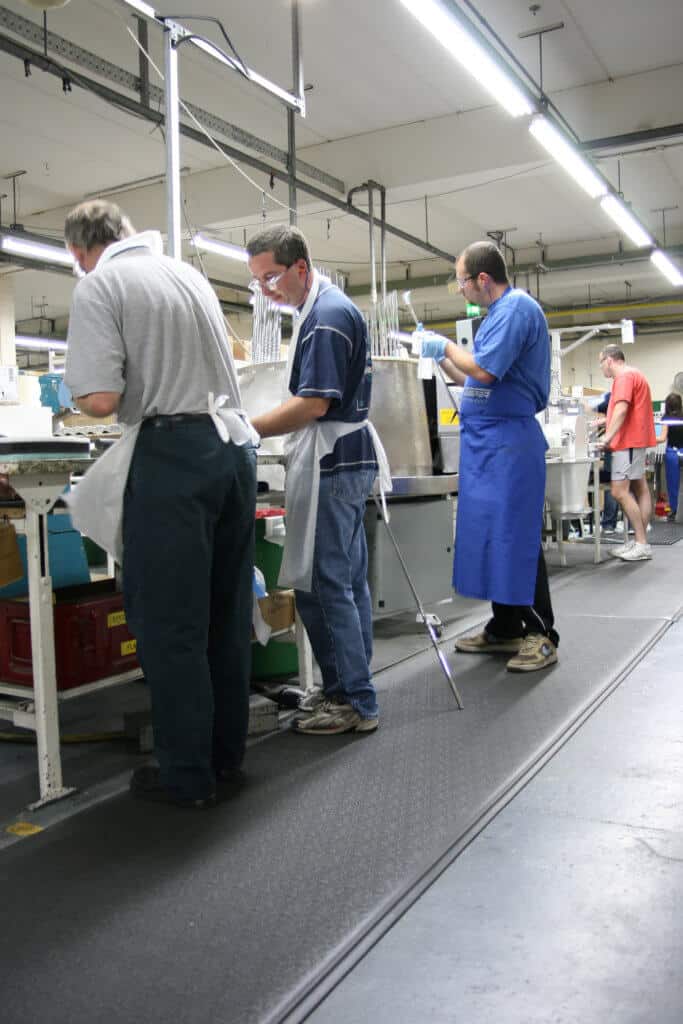
WHAT TYPES OF WORKERS ARE AT HIGH RISK OF FATIGUE?
⚫ Workers required to stand for most of their working day
⚫ Shift and night shift workers
⚫ Workers on call
HOW CAN YOU DECREASE WORKPLACE FATIGUE?
Workplace fatigue can be reduced by having appropriate checks and processes in place to ensure employee wellbeing. These could be enhancing things already in place and introducing essential equipment products such as anti-fatigue matting and standing desks.
See some of our best selling anti-fatigue mat options below:
